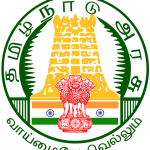- Recently, the Delhi High Court upheld the view that the “Right to Privacy” includes the “Right to be Forgotten” and the “Right to be Left Alone”. The court said this in an order passed in response to a suit filed by an unnamed Bengali actor.
- Earlier, Ashutosh Kaushik an actor, who won reality TV shows Bigg Boss in 2008 and MTV Roadies approached the Delhi High Court with a plea saying that his videos, photographs and articles etc. be removed from the internet citing his “Right to be Forgotten”. The legal basis on which he is demanding that these videos and stories be de-listed or taken down is the right to be forgotten (RTBF).
- This has presented a unique opportunity for the court to engage in a detailed analysis of RTBF and evolve a mechanism for balancing the conflicting rights of privacy and freedom of expression.
- In the plea, Kaushik maintained that the “Right to be Forgotten” goes in sync with the “Right to Privacy”, which is an integral part of Article 21 of the Constitution, which concerns the right to life.
- Individuals in the European Union (EU) have the right to demand that search engines like Google delist certain types of personal information about them that is false, inaccurate, outdated, excessive, irrelevant, inadequate, or taken out of context after the Court of
- Justice of the European Union’s (CJEU) decision in the landmark case of Google Spain v Costeja.
- As to the discussion of RTBF in the Indian context, Justice Kishan Kaul’s opinion in Puttaswamy v. Union of India noted that the right to be forgotten was a part of the broader right of privacy.
- The Right to be forgotten falls under the purview of an individual’s right to privacy, which is governed by the Personal Data Protection Bill that is yet to be passed by Parliament.
- In 2017, the Right to Privacy was declared a fundamental right by the Supreme Court in its landmark verdict. The court said at the time that, “the right to privacy is protected as an intrinsic part of the right to life and personal liberty under Article 21 and as a part of the freedoms guaranteed by Part III of the Constitution”.
- The Personal Data Protection Bill was introduced in Lok Sabha on December 11, 2019 and it aims to set out provisions meant for the protection of the personal data of individuals. Clause 20 under Chapter V of this draft bill titled “Rights of Data Principal” mentions the “Right to be forgotten.” It states that the “data principal (the person to whom the data is related) shall have the right to restrict or prevent the continuing disclosure of his personal data by a data fiduciary”.
Right to be Forgotten
Older PostJallianwala Bagh memorial renovated




